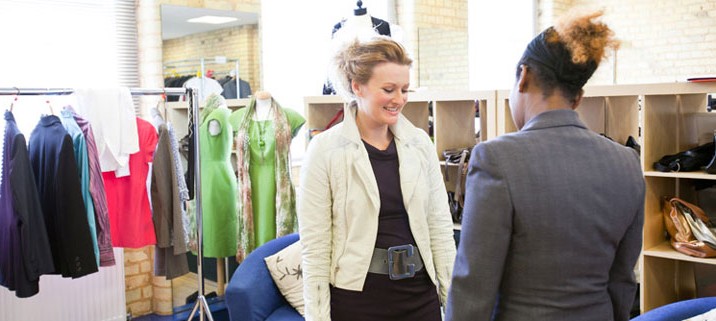
What Not to Wear to Work - and Why
Does it matter what you wear at work? In an ideal world, perhaps it shouldn't matter what you wear, as long as you're good at your job. In the real world, in many jobs, it matters quite a bit.
Lawrence needed a company to organise a corporate event. “I met this woman twice and both times she wore a low cut top. Great for a night out, but for a financial services conference? I don't think so." The business went to someone else.
And here's Alice talking about a new grad who hasn't realised yet that his clothes are stopping him being taken seriously: “His outfits are an office joke - dirty trainers, silly T-shirts and mismatched socks. His work's fine, but if he doesn't get the message to look professional, he won't be with us for long."
In a retail outlet, the uniform and cleanliness is a vital part of their food safety policies: “To put it bluntly, if people have personal hygiene problems or they keep missing bits of uniform, we give them a formal warning. We have a duty of care to our customers and we can't afford to let standards slip."
Clothes are signifiers. You say something in the way you match your clothes to the tasks you have to do that day.
Like it or not, clothes are signifiers - of status, taste, ambition or compliance; of the way you see yourself; of your desire to attract, impress or repel the people around you. You communicate through the colours and shapes you choose, whether you wear your uniform with pride or with shame, whether your outfit is thrown together or was meticulously planned. You say something in the way you match your clothes to the tasks you have to do that day.
Every workplace has formal rules or informal conventions about what is appropriate to wear and some jobs have strict dress codes for safety or hygiene reasons. Clothes are personal and taste is subjective - one person's 'suitable' is another person's 'out there'. Bending the rules can make you stand out (in a good or a bad way); breaking them can mark you out as someone who doesn't belong. From uniforms to designer jeans, suit and tie to high fashion, what you wear to work expresses not just your personality, but also your understanding of your organisation and your own place within it.
So how can we use what we wear to work for us rather than against us? Be aware of what your clothes are saying. Make sure they are conveying the message you want, whether it's “I hate this job and I won't be here for long" or "Promote me. I'm brilliant." Are you aiming for "professional and businesslike" or "highly creative"? "Affluent and doing well" or "give me a pay rise"? Think how you want to come across not just to colleagues but to suppliers, clients and customers and choose what you wear accordingly.
It's easy to fall into a routine in what we grab, bleary eyed, as we struggle out of bed, but occasionally it's worth looking with fresh eyes at our work wardrobe. Re-vamp your image at work and watch how people react - find clothes which support the way you want to see yourself and the way you want your career to progress.
< And when you're not at work? Wear what the hell you like and enjoy the freedom to express yourself.
The picture above is from the website of Smartworks, a charity which provides clothes and advice for low-income women seeking work










